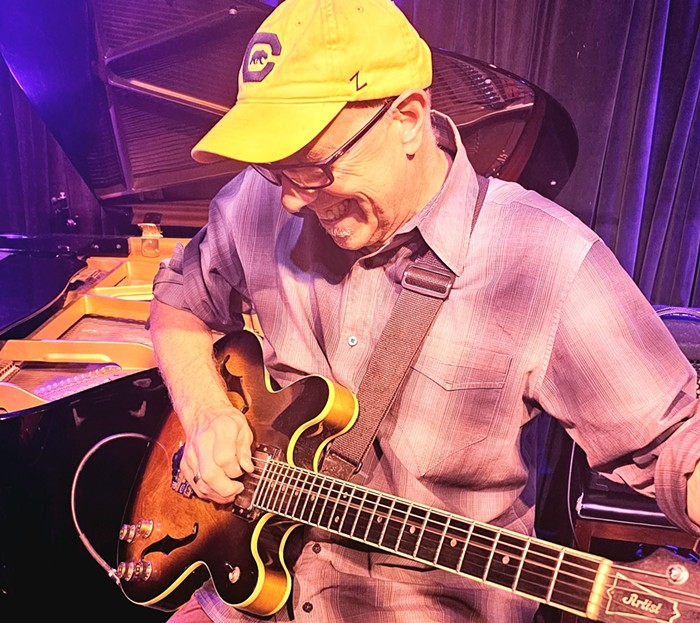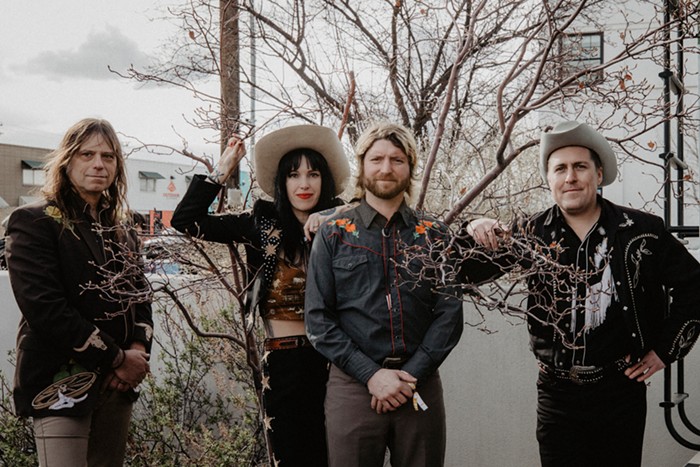SHE'S ONLY 25, so you can find people still referring to Caitlin Rose as "precocious," but with her second full-length album, The Stand-In, Rose hasn't outgrown the word so much as definitively proven it never really applied. (Same goes for the word "country.") Rose's cultured, savvy take on classic American pop—continuing the trend she started on 2008's Dead Flowers EP and 2010's Own Side Now—doesn't ape the words and tunes and world-weary ache of her forebears. Rather, Rose has found something entirely her own, offering a smart-as-fuck, tough-as-nails, sometimes wistfully romantic, other times dryly hilarious voice that knows the crucial importance of a well-made three-minute pop song. And if her sentiments echo AM radio gold and moldering '70s vinyl, that's because those songs got it right, damn it. So does Rose.
Such professionalism might be in her bones. Raised in Nashville (she's the daughter of one of the city's countless songwriters), Rose embraced Music City, USA's underground music scene rather than getting swallowed up by its factory-like country-music industry—she's careful to distinguish the two. "Nashville is an industry town, and that's why it's fostered such a cool underground scene, I think," she says. "Everybody has figured out how to do their own thing with some inspiration from the way the industry works. In my opinion, I don't know if that's true for everyone. But I think that Nashville has an—I don't want to say go-getter, but it definitely has a productive attitude. That's why they made country records in a week, or in a day."
If the excellent The Stand-In wasn't made quite that quickly, it was the result of a few focused weeks of Nashville session work. Its 12 songs run a wide stylistic range, from the candlelit ballad of "Pink Champagne" to the Tom Petty and the Heartbreakers twang of "Silver Sings." There's the raucous, gospel-ish "No One to Call" alongside the moody, gorgeous "Everywhere I Go," which climbs ascending chords as big as boulders. And "Only a Clown" is roots-rock writ large, a marvelous, contagious, surprisingly funny song Rose co-wrote with the Jayhawks' Gary Louris.
The connective tissue on the album isn't explicit, but Rose acknowledges that themes often need time to become apparent. "I think everything becomes more symbolic the more time that passes," she says. "The Stand-In was one of the first titles I thought of, and I don't know quite why—I think it's the sort of thing that tends to sneak up on you eventually and then it hits you and you're like, 'Oh, that's a really awkward reflection on my personality.' But it popped up once, along with some horrible joke titles and a few semi-serious ones. [Then] I was talking to someone and they suggested the title, and I thought it was strange that it came up twice.
"I'm really into showbiz stuff and old Hollywood," Rose continues, "and stand-ins have always been a really interesting idea for me. You know, the 1930s women who would basically be these actresses' doubles and virtually be obsessed with them because they had to be; they had to know everything they were eating and drinking and doing, so they could keep up the physique to be that body double. And these women put in all this work to live out surely some fantasy they had as children—being movie stars—but as soon as the cameras would start rolling they'd have to fuck off. I always thought it was a really interesting idea."
Rose is also wryly self-reflective about the album title's implications. "Touring can easily go into sort of a—you can be present or you can go with this autopilot thing, and it depends on how you're feeling, obviously," she says. "But you have to switch something on and become a different person sometimes, to separate yourself and make sure you put on a good show. Not always, obviously, but sometimes. Perhaps the reason for the title is that it's almost a jab at my own irresponsibility, and sort of taking responsibility for my own creativity... I don't know if that's quite right, but one day I'll figure it out."



















